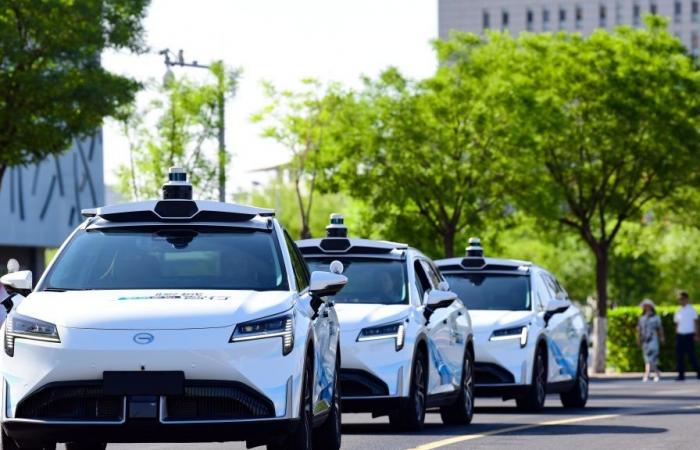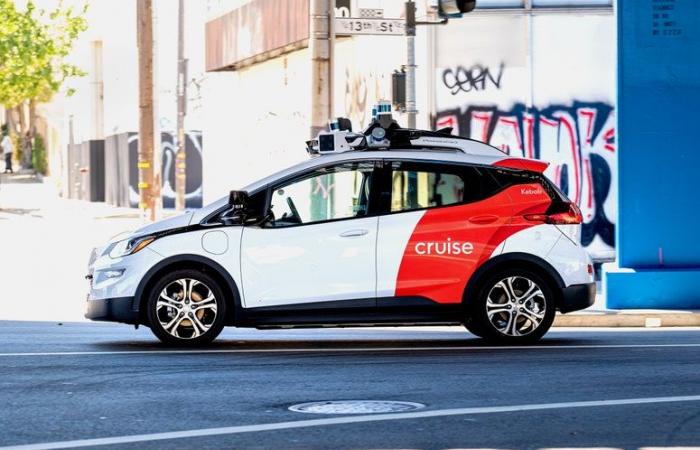China is carrying out the largest driverless vehicle test on record, according to a report from The New York Times. A fleet of 500 computer-driven taxis, backed by Baidu technology, has been deployed in the city of Wuhan. The country led by Xi Jinping is advancing to consolidate itself as a leader in the autonomous driving market.
Wang Yunpeng, president of Baidu’s intelligent driving business group, has said that thanks to programs like the one implemented in Wuhan, the Chinese company now has a five-year lead in research and development (R&D) over Tesla. “By operating fully autonomous cars in these places, we have learned how traffic works block by block.”
Tesla wants to be a protagonist in the robotaxi industry: autonomous driving is the big bet
Autonomous vehicle technology has proven to be complex even for the most advanced developers. But Tesla seems to be betting its future on it.
The information indicates that the initiative is part of an ambitious plan supported by the Chinese Government and local automotive companies to establish global leadership in this sector. “No other country is acting so aggressively,” the report states. More than 16 cities in the eastern nation now allow at least 19 manufacturers to test their automated transportation systems on urban roads.
China’s Ministry of Industry and Information Technology (MIIT) announced earlier this month that it gave authorization to nine companies to begin testing their level three smart driving proposals. The category refers to software that facilitate almost total handling of a car without human intervention. They are operated manually only in emergency cases.
The pilot program has been launched in passenger vehicles, trucks and buses in seven cities, including Beijing, Shanghai and Guangzhou. Companies like Nio, BYD and SAIC Moto have benefited. Baidu and Huawei supply most of the technology used in these tests. The MIIT reveals that until last April, China has authorized until April 2024, China has approved more than 29,000 kilometers of roads to test smart connected cars and has granted nearly 6,800 demonstration licenses.
China wants to lead autonomous driving
Analysts suggest that China has a great chance of dominating the industry thanks to its data restriction policy, the high penetration of electric cars and the research projects that local manufacturers do in other countries.
The Chinese Society of Automotive Engineers projects that by 2030, 20% of cars sold in that market will be fully autonomous. and 70% will incorporate assisted driving applications. Chinese users show a greater willingness to adopt these types of products compared to their American counterparts, according to consulting firm JD Power. The trend is favored by the high number of electric vehicles in circulation within China. “Driverless technology works much better in battery electric cars than in gasoline cars or hybrids. “Electric motors can increase or decrease power with less delay and in more precisely controlled increments,” the note explains. The New York Times. Battery electric vehicles account for 25% of the Chinese market. The figure is higher than the 7% registered in the United States.
Drivers get back behind the wheel of GM Cruise after robotaxi hits pedestrian
Cruise suspended its driverless robotaxis across the US two days after losing its autonomous driving license in San Francisco over an incident in which a pedestrian was trapped under one of its vehicles.
A large part of Chinese automotive companies have R&D centers in the United States and Europe. The findings obtained in these facilities are sent to the design, engineering and development teams located in their original headquarters, to transform them into commercially viable products. In contrast, the policies of the People’s Republic of China prohibit any research conducted in the nation from leaving its territory. The condition prevents foreign automotive companies from capitalizing on what they have learned in the Chinese market to optimize the operation of the autonomous cars they market outside that territory.
Elon Musk, CEO of Tesla, met with Chinese authorities in April to negotiate a license that would allow the company to sell its assisted and automated driving systems in that region. He agreed to keep the data collected by his programs in China and gained access to high-resolution maps of the country’s roads. The latter is crucial to improve the functioning of computer management programs. No other foreign company has access to this information.
Fear and caution in other markets
Regulators in other parts of the world have raised concerns about the safety of this technology and have imposed strict controls that are slowing the progress of companies seeking to compete in the field of autonomous driving.
General Motors’ Cruise robotaxi service discontinued service in the United States last year after one of its cars dragged a pedestrian who had been hit by a human driver. California authorities suspended the state license of the company, which is currently testing its systems on a limited basis in Phoenix. Alphabet’s Waymo has put more than 200 autonomous vehicles on the road in the Arizona state capital and the city of San Francisco. It has deployed an additional fleet of 50 more cars in Los Angeles and Austin, Texas. The company was notified twice about a security investigation being carried out by US federal authorities.
China’s new-generation automotive industry is growing at an unprecedented speed. Its ability to produce basic components for electric vehicles is behind the trend and benefits its aspirations to dominate the automated driving industry. China is a leader in the production of lithium batteries. It manufactures around 75% of the charging centers used worldwide. The Atlantic Council estimates that Chinese exports of these parts grew from $13 billion to $65 billion between 2019 and 2023. Two-thirds of the units were sent to Europe and North America.
The phenomenon has worried governments and automotive organizations in various parts of the world. The United States Government announced last month an adjustment to its tariff policy. It quadrupled tax rates for electric vehicles and batteries made in China. He argued that the decision was vital to protect the US sector from “unfairly priced Chinese imports”. A similar measure was announced this week by the European Commission. At the beginning of next month, it will impose additional and provisional tariffs of up to 38% on the import of electric cars from the Asian country.







